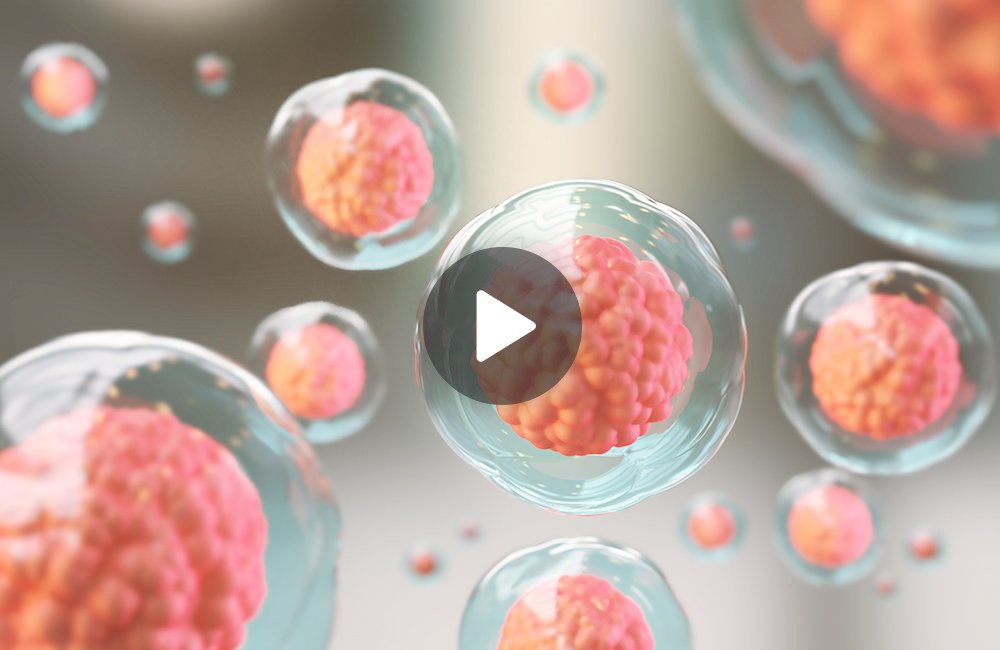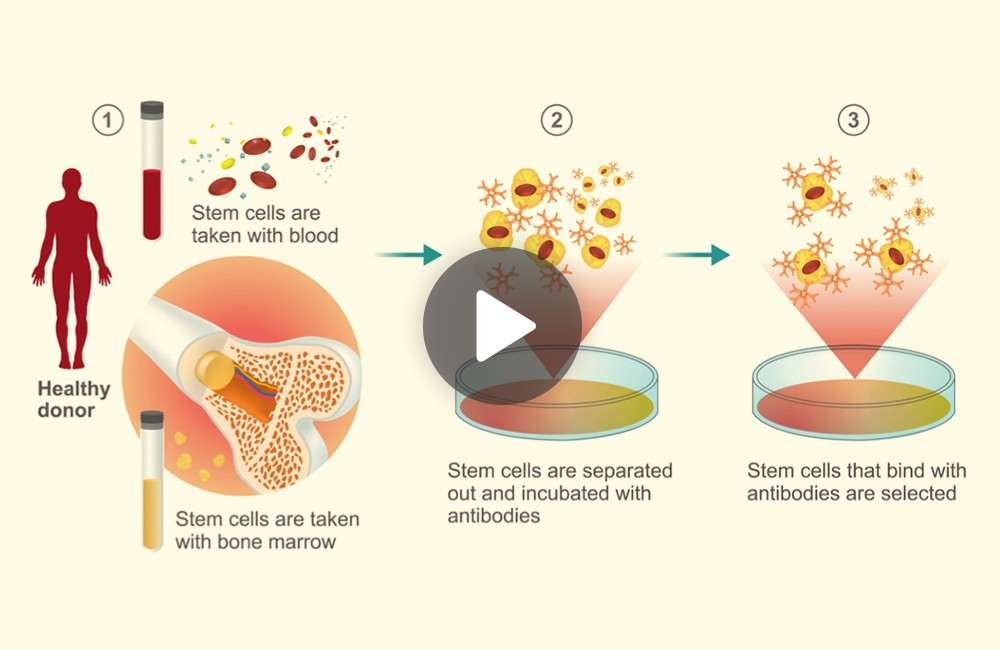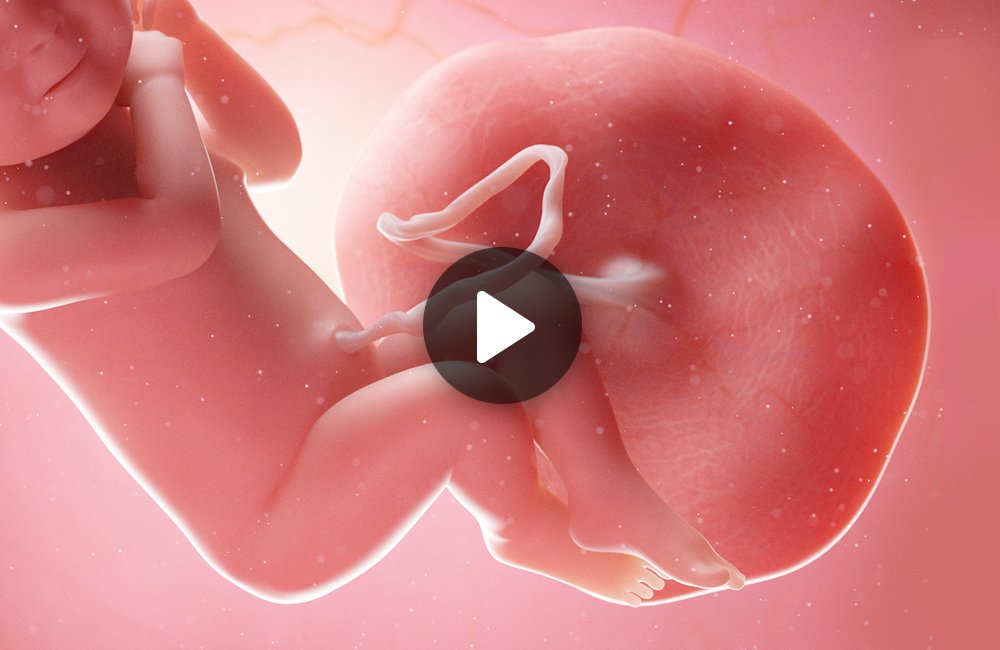Duration
5:00 minutes
Category
Stem cell basics
Series
Cord blood banking
Objective
Educational
The future of stem cell therapy
What you will learn
- How clinical trials are extending the use of stem cells
- The growth of clinical trials involving stem cells
- STAR-heart clinical trial looking at stem cell therapy for heart failure
- Clinical trials involving type 2 diabetes and stem cell therapy
This lesson directs its focus toward the future prospects of stem cell therapies, delving into how scientists worldwide are deeply involved in promising clinical trials to unlock the extended potential of stem cells.
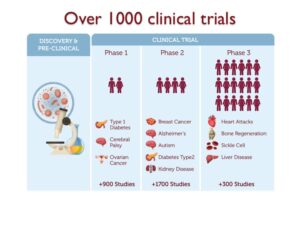
The realm of stem cell research stands as one of the most rapidly growing branches in medical investigation. A staggering number of over 1000 clinical trials are actively delving into the application of both cord blood and cord tissue stem cells to combat ailments like osteoporosis, Alzheimer’s, diabetes, breast cancer, liver failure, and arthritis.
A remarkable surge in the count of clinical trials has transpired from 2004 to 2018. For instance, the count of clinical trials centered around mesenchymal stem cells (which reside in cord tissue and other organs) has surged tenfold between 2005 and 2015.
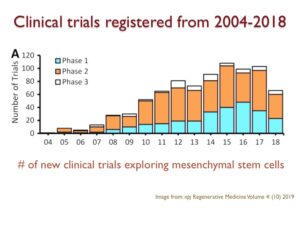
Intriguingly, newborn stem cells sourced from cord blood and cord tissue emerge as the second most extensively explored category, brimming with potential as future therapeutic agents. The extent of progress in developing new disease treatments using stem cells likely extends well beyond the current understanding.
Thus, the ensuing portion of this article will delve into the ways in which clinical trials are venturing into the realm of stem cell therapy for heart disease and type 2 diabetes.
The STAR-heart trial
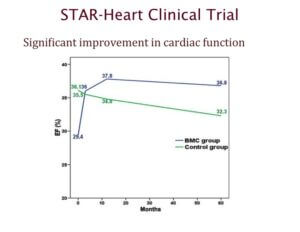
One prominent endeavor is the STAR-heart study, among the largest clinical trials examining stem cell usage in treating heart disease.
This trial encompassed 391 patients afflicted with chronic heart failure, who had previously experienced a heart attack 3 to 8 years prior.
Results from this study underline that patients who received stem cell treatments observed an enhancement in heart function post-treatment, maintaining these improvements over the long term.
Additionally, a significant reduction in long-term mortality rates was noted in patients treated with stem cells post-heart attack. The average annual mortality rate for the stem cell-receiving group was 0.75%, in contrast to 3.68% in the control group that did not receive stem cells.
In essence, the STAR-heart study suggests that stem cell therapy can not only ameliorate heart function and quality of life but also augment survival rates among individuals grappling with chronic heart failure.
Type 2 diabetes
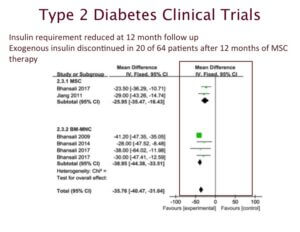
Type 2 diabetes, a metabolic disorder linked to the hormone insulin, poses a challenge in regulating blood sugar levels. Patients with this condition often face issues in producing or utilizing insulin, leading to persistently elevated blood sugar levels.
Insights gleaned from 11 clinical trials encompassing 386 patients with type 2 diabetes subjected to stem cell therapy demonstrate substantial improvements for most recipients.
For instance, after receiving mesenchymal stem cells, 31% of patients no longer required insulin injections. Based on these clinical outcomes, it’s conceivable that stem cell therapy might one day evolve into a standard approach for treating diabetes.
As delineated here, numerous promising clinical trials are delving into the realm of stem cells, aiming to address prevalent diseases such as diabetes, heart disease, and Alzheimer’s.
In the lifespan of your child, there’s an 87% likelihood of them developing at least one of the six listed diseases. Opting to preserve healthy stem cells today would thereby provide your child access to future therapies emerging in their lifetime.
More topics you might like
Continue your journey by selecting another topic.
What are newborn stem cells and why are they important?
3:45 minutes | Stem cell basics
Understand the different types of stem cell transplants.
5:30 minutes | Stem cell basics
Discover more about the placenta, cord blood and cord tissue.
4:00 minutes | Stem cell basics


